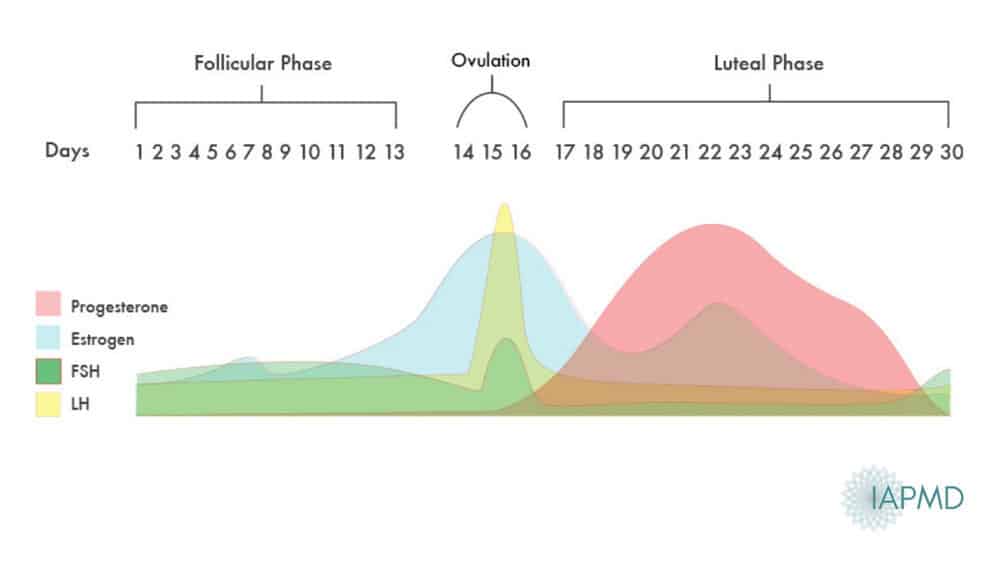
Perimenopause – how to treat naturally?
Perimenopause is the transitional period leading into menopause, which can last anywhere between 2-12 years. Some people sail through this period of their life without a care in the world, while others find it a scary, confusing, and frustrating time because some of the symptoms can be overwhelming or difficult to recognise as perimenopausal. Often women are fed up with the symptoms and search for natural treatment options and unfortunately pick products that aren’t suitable for them. That is why we decided to write a list of naturopathic options to help reduce perimenopause symptoms. Below we will also cover what perimenopause symptoms look like, how our hormones are involved and how to reach out for further support.
Perimenopause symptoms include:
- Anxiety
- Insomnia
- Hot flushes
- Weight gain
- Night sweats
- Longer or shorter menstrual cycles
- Heavier or lighter periods
- Heart palpitations
- Headaches
- Brain fog or forgetfulness
- Fatigue
- Irritability
- Loss of libido
- Bone loss
- Fibromyalgia
- Premenstrual syndrome (PMS) or premenstrual dysphoric disorder (PMDD)
- Genitourinary syndrome (GSM) comprising of genital signs and symptoms such as dryness, burning, irritation, discomfort during sex, recurrent UTI, painful urination, or impaired sexual function.
Menopause is defined as the 12-month period following the final menstrual bleed, but between this and perimenopause some women can experience a variation in their menstrual cycles that make it difficult to tell where they are: perimenopause or menopause?
What’s happening with my hormones?
During this time, ovulation becomes less common, and as a result we make less progesterone and estrogen. On top of this, the amounts we make vary wildly, so that sometimes there is a huge spike of estrogen, which can lead to hot flushes and migraines.
In an ovulatory cycle, we make 100 times more progesterone than estrogen. In perimenopause, we aren’t ovulating as often so we make less progesterone in relation to estrogen, and this causes an imbalance that makes the effects of estrogen much more potent.

Image from: https://essentialfeeling.co.uk/2019/12/01/ovulation-calculator/
Progesterone
This hormone is made after ovulation, so on the way to menopause when you are ovulating less, progesterone production slows down.
Progesterone is responsible for thinning the lining of the uterus, supporting our mood by increasing GABA production (a calming neurotransmitter), keeping our cycle regular and warding off premenstrual symptoms.
Estrogen
When it comes to mood, estrogen can regulate our happy hormones and stress stabilising mechanisms (serotonergic and noradrenergic systems) to have an anti-depressive and anti-anxiety role.
Estrogen also helps in the formation and maintenance of healthy bones, as shown by a loss of bone mineral density in peri-and post-menopausal women which can lead to osteoporosis if not addressed.
Declining estrogen can lead to hypothalamic thermoregulatory dysfunction, which is how the brain controls temperature regulation to avoid hot flushes.
The ratio between estrogen and progesterone
This is very important because the symptoms of ‘estrogen dominance’ such as heavy or painful periods, can actually be caused by low progesterone. Determining how much progesterone you are making can be tricky, and needs to be tested within 7 days of your period for the best insight as this is the window after we should have ovulated and progesterone should be at its highest.
Insulin
Insulin resistance is common in menopause and perimenopause and happens when our cells become less receptive to insulin, which means you can’t get the sugar in your blood into cells for energy. This is caused by metabolic changes as a result of oestrogen fluctuations. It will lead to excess weight stored around your midsection, which is almost impossible to lose.
What can you do to reduce your symptoms?
Magnesium & Taurine
300mg of magnesium and 300mg of taurine has shown to improve mood, hot flushes and sleep.
Black cohosh
There is a small amount of evidence available to suggest that black cohosh, a woodland herb, is successful in reducing vasomotor, psychiatric, physical and sexual symptoms in menopause but it does not work for everyone. Trialling a good quality black cohosh extract for 4-8 weeks could improve peri menopausal symptoms in some people.
Vitamin D and calcium
Due to the risk of osteoporosis, calcium and vitamin D are recommended to improve skeletal health.
It’s important to check your vitamin D levels and get a bone density check, and remember the best way to get your vit D is from the early morning sun.
Cinnamon
Used as a herbal extract or in food, cinnamon helps to decrease insulin resistance by managing blood sugar levels and making insulin more efficient at its job. A teaspoon in your morning smoothie is helpful, or using a supplement that contains an extract can also reduce your risk of insulin resistance.
Evening primrose oil (EPO)
Often used to treat premenstrual symptoms, EPO is an oil extracted from the seeds of the evening primrose that can be used for perimenopausal mood symptoms. A study of 100 menopausal women in Iran showed that psychological symptoms associated with menopause were reduced when a dosage of two 1g EPO tablets a day was used for 2-4 weeks.
Sage
Humble sage can be helpful for treating hot flushes, as demonstrated by a study in Switzerland that followed 71 menopausal patients for 12 months. This can be prepared fresh or taken as a tablet.
Vitex
Vitex-agnus castus is a herbal medicine with phyto estrogenic qualities that can also interact with the pituitary gland in the brain to control signalling for hormone production. It has been shown to be effective in reducing vasomotor dysfunction and anxiety in some studies.
Red clover
This herb has been shown successful in treating hot flushes in peri menopausal and menopausal women.
B6
Low B6 has been linked to anxiety and depressive symptoms in a study done on 289 Japanese middle aged and elderly women, in part due to its ability to act as a cofactor in the production of neurotransmitters such as serotonin, dopamine, and norepinephrine to name a few. These have significant effects on mood and psychiatric disorders.
Fenugreek
Taken at a dosage of 250mg twice a day, a standardised fenugreek extract was shown to significantly reduce vasomotor symptoms such as hot flushes and night sweats, as well as depression, in a small 2020 study.
I recommend using herbs and supplements under the guidance of a qualified naturopath or herbalist to ensure you are using good quality sources and the right ones for your individual circumstances. If you would like personalised support for your perimenopause journey get in touch with Margaret or book in a session below.
Liked this article, want to learn more
Book in a free base chat with our practitioners to understand the best diet & lifestyle shifts, herbal or nutritional options for you. All of our practitioners are clinically trained and evidence based registered with Australia’s leading associations.
Follow up on Instagram for more tips, support and fun.
References
https://pubmed.ncbi.nlm.nih.gov/33095879/
https://pubmed.ncbi.nlm.nih.gov/31612618/
https://pubmed.ncbi.nlm.nih.gov/31547180/
https://pubmed.ncbi.nlm.nih.gov/29076687/
https://pubmed.ncbi.nlm.nih.gov/33182514/
https://pubmed.ncbi.nlm.nih.gov/28768649/
https://pubmed.ncbi.nlm.nih.gov/29583083/
https://pubmed.ncbi.nlm.nih.gov/28392498/
https://pubmed.ncbi.nlm.nih.gov/24499633/
https://pubmed.ncbi.nlm.nih.gov/32972636/
https://pubmed.ncbi.nlm.nih.gov/34463069/
https://pubmed.ncbi.nlm.nih.gov/31067851/
https://pubmed.ncbi.nlm.nih.gov/29403626/
https://pubmed.ncbi.nlm.nih.gov/33182514/
https://www.ncbi.nlm.nih.gov/pmc/articles/PMC2901047/
https://pubmed.ncbi.nlm.nih.gov/33025616/
Related posts
Natural treatments for dysbiosis
Our vaginal microbiome plays a crucial role in overall vaginal he
Fuelling The Vaginal Microbiome Blog
What is the vaginal microbiome? Much like the gut, the vagina has





